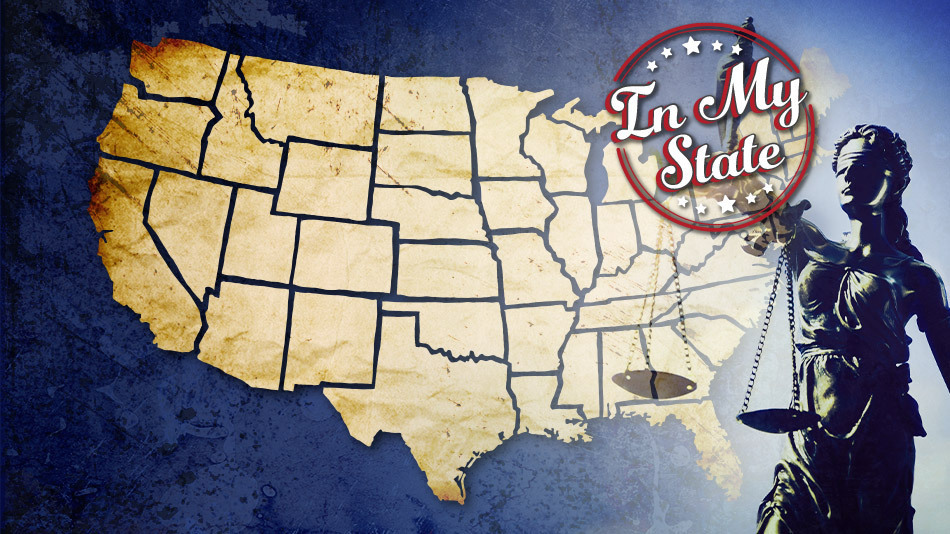
The ever-changing political landscape requires U.S. LawShield members in Kansas to remain vigilant for the latest proposed bills that could impact your Second Amendment rights. While it is too early in the Kansas legislative process for meaningful legislative filings, there are a couple of noteworthy submissions so far. A quick review of last year’s bills may give some insight into what we might expect this year.
State Legislation Passed from 2020
First and foremost was the passage of the omnibus 2020 COVID-19 pandemic response. That bill modified the Kansas Emergency Management Act (“KEMA”) which governs the power of the governor to rule unilaterally during a declared state of disaster emergency. It provided that the governor shall not have the power to make certain orders regarding ammunition, firearms, or elections. Further, the bill amended the KEMA violation statute changing the penalty from a Class A misdemeanor to a civil penalty up to $2,500 per violation of an emergency order and specified how enforcement actions may be brought among other changes.
House Resolution 5025 ratified and extended the governor’s state of disaster emergency declaration for the state subject to additional extensions by concurrent resolution of the legislature. Specific within that resolution included powers related to limiting the government’s commandeering of private property, controlling movement of persons and animals, alcoholic beverages, explosives, combustibles, and the seizure or sale of ammunition or firearms.
These are all important considerations intended to curtail potential overreach of the governor’s declarations during a state of emergency, thus providing substantial protections for all of us.
State Proposals on the Horizon
Several Bills have been submitted during the current legislative session.
House Bill 2025 is certainly favorable for hunters in Kansas, including our HunterShield® members. This proposed legislation would require either a Kansas Department of Wildlife, Parks, and Tourism officer authorized to enforce the laws of the State of Kansas or a county weed supervisor to procure a warrant under state statute prior to conducting surveillance on private property, unless there is a judicially recognized exception to the search warrant requirement.
House Bill 2048 is proposed legislation addressing potential overreach and that extends certain provisions of the governmental response to the COVID-19 pandemic in Kansas, and provides that the governor shall not have the power or authority to temporarily or permanently seize, or authorize seizure of, any ammunition or to suspend or limit the sale, dispensing, or transportation of firearms or ammunition during this public health emergency.
House Bill 2058 is proposed legislation allowing reciprocity to recognize out-of-state licenses to carry a concealed handgun. This bill language is also included in HB 2059.
In one of the most significant proposals yet this year and long overdue is House Bill 2059 which seeks to legalize eligibility for a concealed carry license to adults 18 years or older. There will now be a provisional license issued to qualified residents between the ages of 18 and 21 years. The Bill would further allow reciprocity to recognize permits lawfully issued by another jurisdiction, including lawful holders between the ages of 18 and 21 years. Note that Kansas law would still prevent constitutional carry of concealed firearms by unlicensed individuals under the age of 21.
Given the hardships and uncertainties concerning renewal of concealed carry licenses in Kansas during the COVID-19 crisis, House Bill 2089 authorizes the attorney general to issue an alternative license to carry a concealed handgun to qualified applicants during a declared state of disaster emergency. This would be in the form of an authorization document that serves the purpose of a duly issued license that would expire 90 days after such state of disaster emergency is terminated.
Potentially critical, House Bill 2095 would allow courts to prohibit possession of a firearm in a temporary custody order pursuant to the care and treatment act for mentally ill persons. The clear peril to members is the execution of such an ex parte order by the court which is issued without any response by the individual. The court must schedule a review of such an order by the close of business of the second day the district court is open for the transaction of business after the filing of the request for review.
Harkening back to past rules, House Bill 2140 would prohibit the carrying of a concealed handgun by an individual in the state Capitol. This was the status of the law for some time at the inception of the concealed carry statutes here in Kansas.
Senate Bill 14 is the Senate’s version of House Bill 2048.
These issues are simply the start of a new year of legislation; we will be monitoring both new and old proposals over the coming months.
Federal Proposals on the Horizon
Last session, the 116th U.S. Congress proposed assault weapons bans, red flag orders, mandatory reporting of NICS denials to law enforcement, and countless other anti-2A legislation. All of these individual proposals were awful, but none were worse than the omnibus HR 5717 (Gun Violence Prevention and Community Safety Act of 2020), which would have incorporated the worst provisions of each of these proposals. If you want a preview of what anti-gun bills filed during the 117th Congress could look like, pay attention to HR 5717. The 117th Congress was sworn in on January 3, 2021, and their term ends on January 3, 2023. To learn about how federal law is made, check out The Legislative Process by the United States House of Representatives, and stay tuned. We are keeping a close watch for bills and resolutions that would affect Second Amendment rights.
Should you have any questions about the bills discussed or the legislative process, contact U.S. LawShield and ask to speak to your Independent Program Attorney.
The information provided in this publication is intended to provide general information to individuals and is not legal advice. The information included in this publication may not be quoted or referred to in any other publication without the prior written consent of U.S. LawShield, to be given or withheld at our discretion. The information is not a substitute for, and does not replace the advice or representation of a licensed attorney. We strive to ensure the information included in this publication is accurate and current, however, no claim is made to the accuracy of the information and we are not responsible for any consequences that may result from the use of information in this publication. The use of this publication does not create an attorney-client relationship between U.S. LawShield, any independent program attorney, and any individual.





None of the proposed legislation, nor future legislation, will alter my thoughts or actions regarding
the 2A. I was born free, I will die free. I don’t expect anyone else to comment because the FBI, CIA, NSA, DIA, and a host of other treasonous rogue agencies are literally tracking and recording everything we do.
But just remember this all you “hard core” gun owners holding on tightly to your channel changers, “if it’s time to bury your guns, it’s time to dig them up”.
What are you honestly going to do, when they show up to disarm you?
I have never written a comment you people haven’t censored and cancelled, so you have now opened my eyes to the fact you don’t support the cause, your company doesn’t believe in anything but the money, certainly not free speech by American citizens. So.. I’m canceling my membership and joing USCCA.